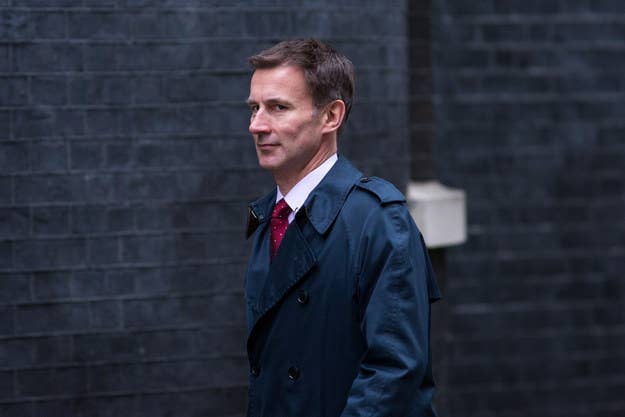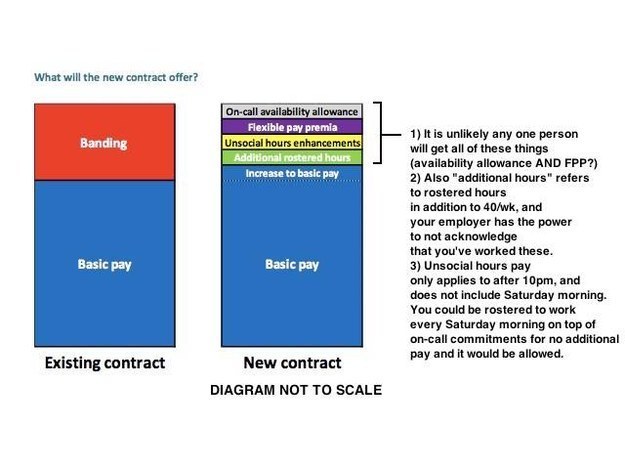The government has no record of the number of hours junior doctors are made to work, despite claims that only a "small minority" of them are working unsafe hours, BuzzFeed News has learned.

The Department of Health (DoH) was asked under the Freedom of Information Act to reveal how many NHS England trusts asked junior doctors to work 12 days or more without a day off and how many junior doctors worked 12 days or more without a day off in the last year.
In its response, seen by BuzzFeed News on Monday, the department said that it does not hold this information centrally.
The Freedom of Information request also asked the DoH how many junior doctors worked more than 56 hours a week in the last year.
In its response, the department said again that it does not hold that information, but added: "Information held on the Electronic Staff Record indicates that there may be 500 doctors on band 3 who are working in breach of the contract and may be working more than 56 hours. Some of this number may also include breaches of the rest period requirements in the contract.
"It seems unlikely that trusts, who are responsible for the working arrangements of all their staff, would deliberately employ doctors to work more than 56 hours per week. This would require those doctors to opt out of the Working Time Regulations, which is a voluntary act."
Junior doctors have repeatedly said that they are overworked and that a new contract proposed by health secretary Jeremy Hunt would allow that to continue while reducing doctors' pay.

Hunt has also said that no junior doctor would see their pay reduced under the new contract, offering an 11% increase to basic pay, to compensate for changes to "sociable working hours".
He claimed that only a "small minority" of around 500 junior doctors are working a number of hours that would allow them to be paid a premium, or "what is colloquially known as 'danger money'".
"Every doctor dreads 'the 12-day stretch', where once every eight weeks you face two weeks of pure punishment," junior doctor Sundeep Grewal, a registrar in geriatric medicine, told BuzzFeed News recently. "Everyone knows you'll look and feel like a zombie and that the second half of the week is when you'll make most mistakes."
Doctors are currently paid at a higher rate outside of "sociable working hours", currently set at 7am–7pm Monday–Friday. The new contract would see them altered to 7am–10pm Monday–Friday and 7am–7pm on Saturday.
Many doctors have said they would stand to take a pay cut of around 30–40% as a result of these changes because so much of their work takes place outside of their contracted hours.
The government disputes this on the basis that doctors would be scheduled for substantially more hours than they should be under the new contract.

Doctors say staff shortages are forcing them to work excess hours rather than choosing to overwork themselves for financial gain.
Hunt's "cost-neutral" contract would not see the recruitment of more doctors to cover these excess hours, which has led doctors to believe that it would simply leave them working more hours for less money.
"Nobody wants this money – we just want to work hours we're rostered for and go home," Osman Khalid, a junior doctor in London, told BuzzFeed News. "But if we end up working longer hours as we sometimes need to, we should be compensated."
Under the current contract, doctors can only be rostered to work more than 56 hours per week if they voluntarily opted out if the European working time regulations, and would be given a higher rate of pay for hours worked in excess of that at the cost of their NHS trust.
The new contract would remove this penalty system and replace it with a "work scheduling" agreement between doctor and employer, so while doctors still couldn't legally be made to work more hours, they would lose compensation if they did so.
"It makes it impossible for junior doctors to trust the government when they have been caught out trying to gloss over the facts," Dr Johann Malawana, chair of the British Medical Association's Junior Doctors' Committee, said recently in response to Hunt's claims that only 500 doctors would miss out on "danger money".
BMA leaders have been in talks with DoH officials at the conciliation service ACAS since Friday in a bid to strike a deal and avert the first walkout by junior doctors, which is due to take place on Tuesday. The action is one of a wave of three strikes scheduled for December after 98% of junior doctors balloted by the BMA voted in favour of industrial action over the contracts.
